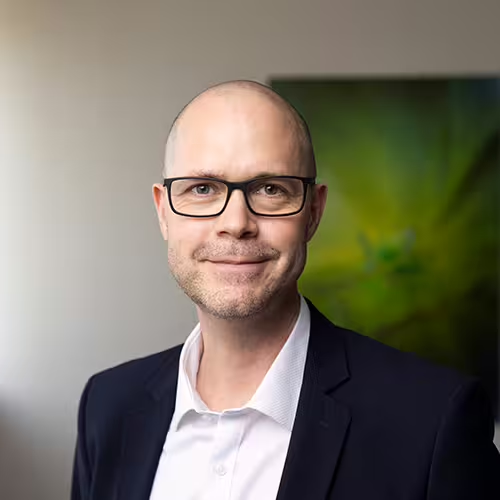Making sustainability desirable, functional and long-lasting
Hallvard Bremnes' Story

Hallvard’s recipe for success
Hallvard Bremnes is the Global Head of Sustainability at Givaudan. He considers himself an engineer at an artistry company. Prioritizing action, he is focused on implementing sustainability initiatives and building sustainable solutions with a practical and forward-looking approach.
About Givaudan
Founded in 1895 as a perfumery company, Givaudan is a multinational manufacturer with a history rich in creating and innovating scents and tastes. Based in Switzerland, the business is divided into two activities: Taste and Wellbeing, and Fragrance and Beauty. Reaching millions of consumers worldwide its products are used in food, drinks, perfume and laundry care.
Sector: Flavours and fragrances
Employees: >16,200
Geography: Headquartered in Switzerland, active across the world
Website: www.givaudan.com
Challenges
faced
Hallvard has long been driven by a deep commitment to environmental stewardship. Having worked at Givaudan for nearly 15 years, with the last five in his current role, Hallvard was eager to champion change. However, he quickly recognized the challenges that came with his ambition.
His biggest hurdle: overcoming the uncertainties around time frames and the slow pace of change. Without a ‘burning platform,’ he found it challenging to convey the urgency of sustainable action to colleagues and decision-makers, especially when targets are set far in the future.
His forward-thinking approach wasn’t always understood by his colleagues and he is proud of bringing his colleagues along on the journey.
He also had to learn patience, accepting that the absorption of new concepts in companies takes time.
Actions
taken
When it came to implementing sustainability initiatives at Givaudan, Hallvard drew on his engineering expertise to craft systematic solutions. He collaborated on the development of a 100-day transformation plan that laid out the expected outcomes and brought together a sustainability ‘dream team’ to weave Givaudan’s sustainability ambitions into the business. This team was encouraged to focus on the most important transitions that need to happen to ensure success.
Hallvard made sustainability more accessible by bridging knowledge gaps and enabling others to make informed decisions. With his team he created clear roadmaps for each sustainability topic with specific, measurable, science-based targets (SBTs) that set clear goals on how to reduce emissions throughout Givaudan’s value chain. By showing how science dictates what is necessary to limit global warming, Hallvard dispelled doubts and fostered accountability and transparency by tracking progress on SBT targets and adjusting strategies.
Hallvard emphasized the importance of having clear roadmaps for their sustainability priorities in order to drive change, measure progress, and identify hurdles to overcome. For the Givaudan roadmap, he used WBCSD’s Vision 2050 as a blueprint—a framework he actively contributed to creating.
For him, approaching sustainability in a systematic manner was a defining moment for a company filled with artists.
Another one of Hallvard’s team initiatives was to set an internal carbon price, to show the adverse effects of non-sustainable projects over the longer term.
Resonance
of impact
Hallvard has become known as someone who gets things done. Demonstrated with his assertiveness, and working hard to show what good looks like, he has engaged people from within Givaudan and their supplier network. His example has empowered his team to intervene when projects stall: “when in doubt, execute” as the cost of inaction is usually higher than the cost of intervening.
By making sustainability desirable, functional and long-lasting, Hallvard and his team have spearheaded positive change in many areas. One such area is responsible sourcing, and Hallvard is proud of his company’s inclusive approach to responsibly and sustainably sourcing nearly 12’000 raw materials. For example, in North America, Givaudan sources goldenseal, a medicinal herb and protected species which thrives in natural habitats threatened by urban expansion and facing unsustainable harvesting practices. Working together with local suppliers and conservation organizations, Hallvard and his team are supporting the training of harvesters in sustainable harvesting practices and regeneration. Meanwhile, in the Mediterranean basin, they have developed a domestication program for rosemary, traditionally harvested from the wild, to alleviate pressure on the resource.
Hallvard plans to build a more inclusive narrative on nature conservation.
Officially recognised in the 2021 World Sustainability Awards, in winning the ‘Sustainability Team Award’, it seems Hallvard and his ‘dream team’ really did get the formula right.